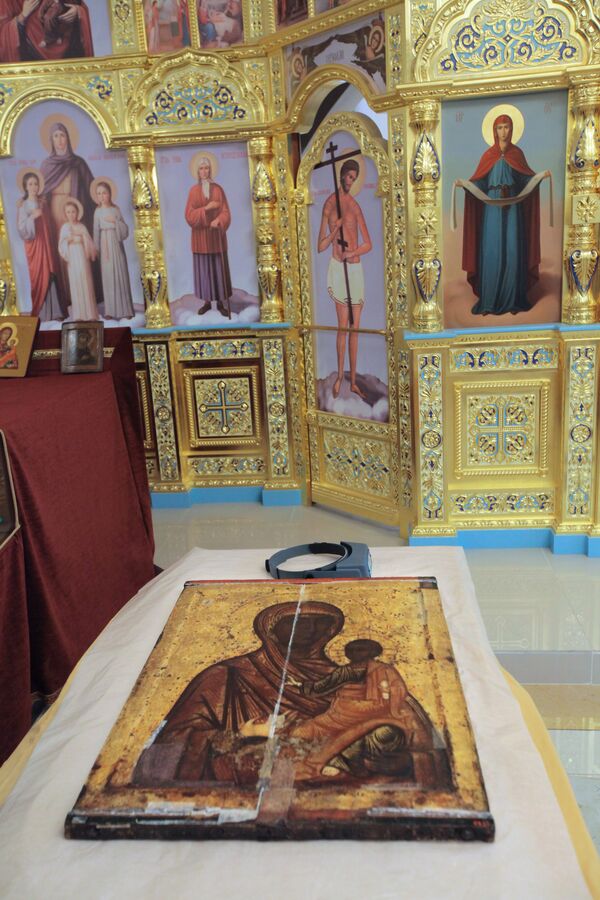A legal feud between Russia and the U.S. over an old Jewish archive has resulted in the Russian Culture Ministry invoking a rare legal step of "force majeure" to order the immediate return of 37 icons and artifacts on loan at a local U.S. museum, the museum's website said on Saturday.
The Museum of Russian Icons in Clinton, Massachusetts, has become the latest victim of a recent Russian ban on all art loans to U.S. museums.
The ban was prompted by a U.S. court decicion last year that ordered Russia to return part of a large trove of Jewish religious books and documents, known as the Schneersohn Library, to the Agudas Chasidei Chabad organization in Brooklyn, N.Y., which claimed the items were being held illegally.
Russia disputed the ruling that allowed U.S. authorities to seize all Russian loaned artworks not covered by diplomatic immunity. Russian Culture Minister Alexander Avdeyev said in January the ban would be in place until the U.S. could guarantee that no loaned Russian artwork would be seized in order to force Moscow to return the collection.
Gordon Lankton, founder of the Museum of Russian Icons, said the museum received a "direct order" from the Russian government earlier this week saying that the 37 icons from Moscow's Andrey Rublev Museum must be returned.
He said it was a shame to see the icons go.
"Someone in the Russian government is very persistent. It seems to be a personal vendetta between a couple of people, but I don't know who those people are," he said.
But U.S. museum experts say Russia has misinterpreted the case, and the loans were in no danger.
"They're crazy," said Gregory Guroff, president of the Maryland-based Foundation for International Art and Education. "They are calling back items that are protected and granted immunity by the State Department."
A curator from the Andrey Rublev Museum arrived in Clinton on Saturday to oversee the icons' return to Moscow.
The Russian ban also pertains to art on loan in museums in New York and Washington D.C.
MOSCOW, March 19 (RIA Novosti)


